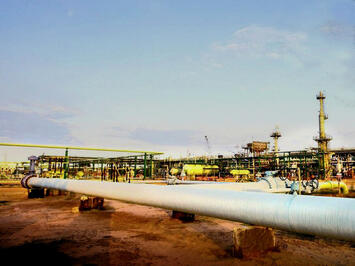
South Africa is one of the few countries that developed from the interior towards the coast, with Gauteng’s prosperity built around mining activity, the steady supply of water from Lesotho, and the availability of energy from the rich coal fields of the Mpumalanga and Limpopo provinces.
But there is now a potential to complement the political economy with Liquefied Natural Gas (LNG) as the KwaZulu-Natal (KZN) Provincial Energy Summit approaches.
A good topic for the Economic Development, Tourism & Environmental Affairs MEC, Siboniso Duma, would be to discuss the geopolitical potential of Richards Bay, so that the port city can become South Africa’s Houston.
Liquefied Natural Gas (LNG) that consists primarily of Methane Gas (CH4) is often referred to as The Transition Fuel because of the commodity’s ability to be used as a base-load, mid-merit, and peak saving fuel in electricity generation.
In the first two cases, LNG serves as a backup or complement generation for both for nuclear and coal power, and in the latter, as a peaking gas plant that counteracts the intermittency of solar panels and wind turbines.
The transition term refers to the hope that storage technologies such as pumped hydro, molten salt nuclear, or batteries will become more available within the next decade. LNG acts as the “safety of supply” so that the energy system can be de-carbonised without hindering the prosperity of the poor through high electricity tariffs.
In addition to electricity, methane has other applications such as domestic cooking, home heating, industrial heat, and long-distance transportation (road, rail and waterborne), with the latter providing the potential to lower food prices in the logistics driven economies that are common throughout the African continent.
South Africa should concentrate on developing the import market before domestic extraction, because even though the Karoo holds the seventh largest deposit of natural gas in the world, extraction carries risks if there isn’t an available domestic consumption market.
The LNG market is highly competitive, with more than 40 countries competing for imports and exports, and the sector is unique in the sense that there is no major geopolitical player, such as an “OPEC” or “Saudi Arabia” that can dictate terms or prices. Not even Russia, the US or Qatar – as is often asserted.
Read the rest of this piece at IOL.
Hügo Krüger is a South African born Structural/Nuclear Engineer, writer and YouTube podcaster, commentating on topics relating to Energy and Geopolitical Matters, Hügo is married to an Iranian born Mathematician and Artist; the couple resides in Paris.












